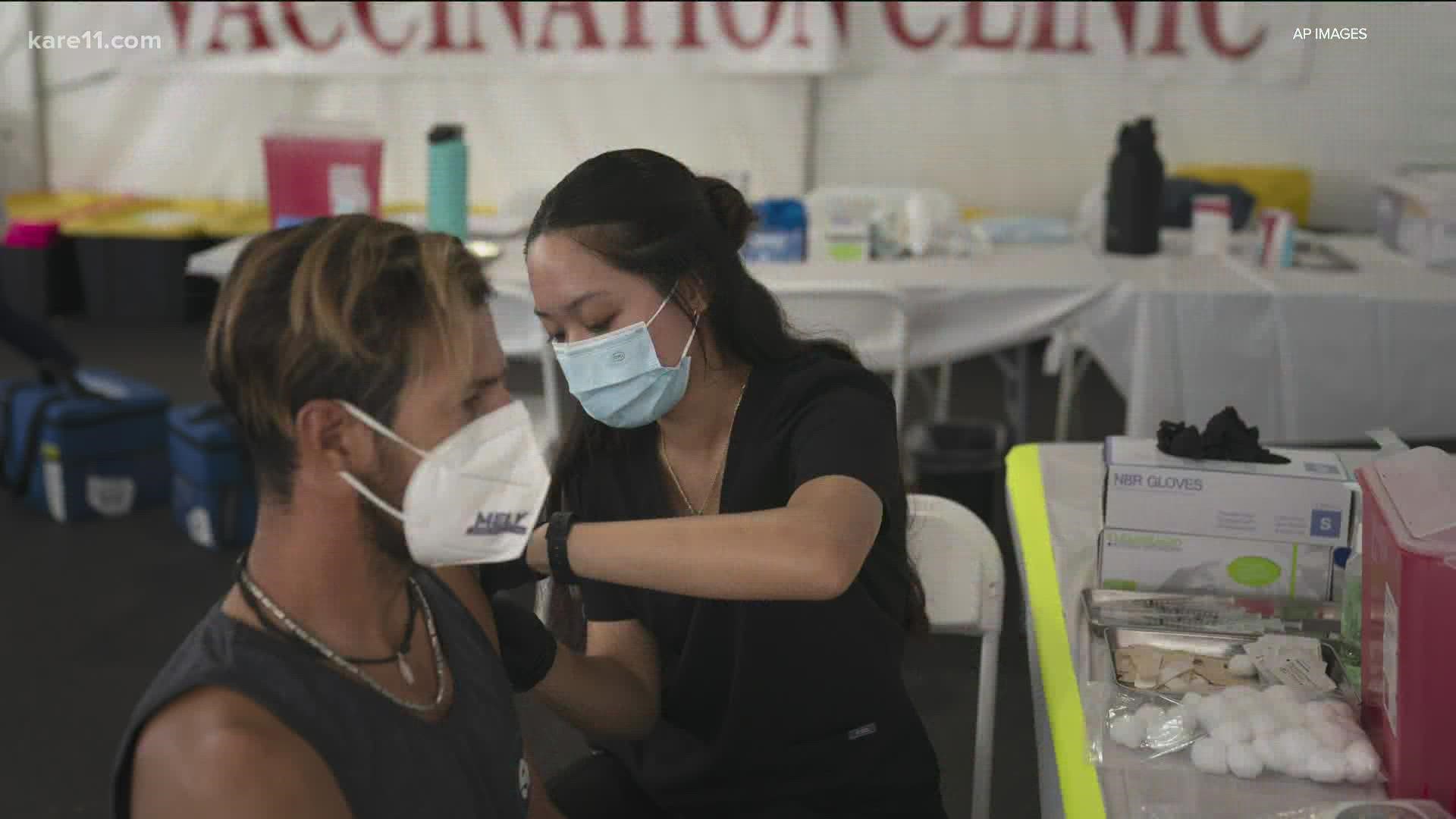MINNEAPOLIS, Minnesota —
Health experts say the 2020 flu season was nearly non-existent during a time of masking and social distancing in the pandemic. But now that more people are getting vaccinated against COVID-19, they are out and about more, which means your chances of catching the flu are back.
Doctors say your immunity against the flu may have weakened in the last year and a half, but they say like any other year, it’s important to get a new flu shot due to possible new strains.
“We are starting to see some influenza cases already, and the vaccine takes a couple of weeks for us to build our protection. We do not know exactly when the flu season will peak, but you want to be protected now in case that comes early this year. The flu season does typically last until spring, so I always recommend people get vaccinated, even if they don’t get the shot until into the winter,” says Dr. Scott Kammer, Medical Director for UCare.
Right now, flu shots are readily available at community clinics and pharmacies. And in many cases, no appointments are necessary.
“Influenza is a deadly illness that can be largely prevented by getting a flu shot each year. Every fall, health experts recommend that everyone 6 months and older get a flu vaccine. Influenza is a respiratory virus with symptoms like fever, cough, fatigue, and body aches. The flu vaccine helps prevent people from getting sick with the flu and also helps reduce hospitalizations and death from the virus,” explains Dr. Kammer.
“Like many viruses, the flu can change from year to year, so the vaccine makers are trying to predict what strains are most likely to circulate during the winter and match the vaccine to that prediction. The flu shot always helps, but some years the prediction is better, and the shot ends up more effective than other years,” adds Dr. Kammer. Health experts say now is the best time to get your flu shot, and if you’re eligible for a third COVID-19 vaccine or booster, you can get it at the same time as your flu shot. Dr. Kammer says it’s important to understand the difference between flu vaccinations and COVID-19 booster shots. They are equally important for protecting your health and the health of those in your community.
”This year, doctors are very worried about a more severe flu season. With all our COVID-19 precautions last year like masking, social distancing, and staying home, we really didn’t see much flu at all. That means that many people have lost some of their existing immunity to flu. This may lead to more flu cases, more severe flu, and possibly an earlier or longer than normal flu season. That’s why getting a flu shot is so very important now,” explains Dr. Kammer.
Health experts warn COVID-19 and influenza can circulate at the same time. They have similar symptoms like fever and cough, and they can each spread via respiratory transmission. However, Dr. Kammer explains the vaccines for each are different, so people really do need both flu and COVID-19 shots.
“Having protection from both of these viruses is so critical now, both for our own health but also for the health of others around us,” added Dr. Kammer.
“COVID-19 booster rules have been confusing. There are actually two categories, the third dose and the booster. These aren’t exactly the same thing. The third dose is for those people who are immunocompromised, such as being treated for cancer, history of a transplant, advanced HIV, or people on certain medications that suppress the immune system. With the Pfizer and Moderna vaccines, these people need 3 doses instead of 2 in order for their bodies to build that base of protection. They are eligible for that 3rd dose 4 weeks after the 2nd one."
"The booster shot, on the other hand, is designed to build our immunity back up after it may lessen over time. Studies are starting to show some loss of protection, even though the vaccines are still doing an excellent job at preventing hospitalization and death. For the booster, only people who have had the Pfizer series are eligible now,” explained Dr. Kammer.
The FDA decision on giving a booster shot for the Moderna or the Johnson and Johnson vaccines is still pending, but it could come very soon.
Currently, the CDC recommends the booster for only certain adults 6 months after completing the initial Pfizer series. These people include everyone over 65 and adults living in long term care settings. They also include adults with certain underlying medical conditions that raise the risk for Covid-19 complications. Some examples of these conditions include heart, lung, liver, or kidney disease, diabetes, and cancer. People who work in higher risk settings may also get the booster, such as first responders, health care workers, teachers, and public transit or grocery store workers.
“It can get complicated, so check with your family doctor or neighborhood pharmacy if you are not sure,” says Dr. Kammer.

